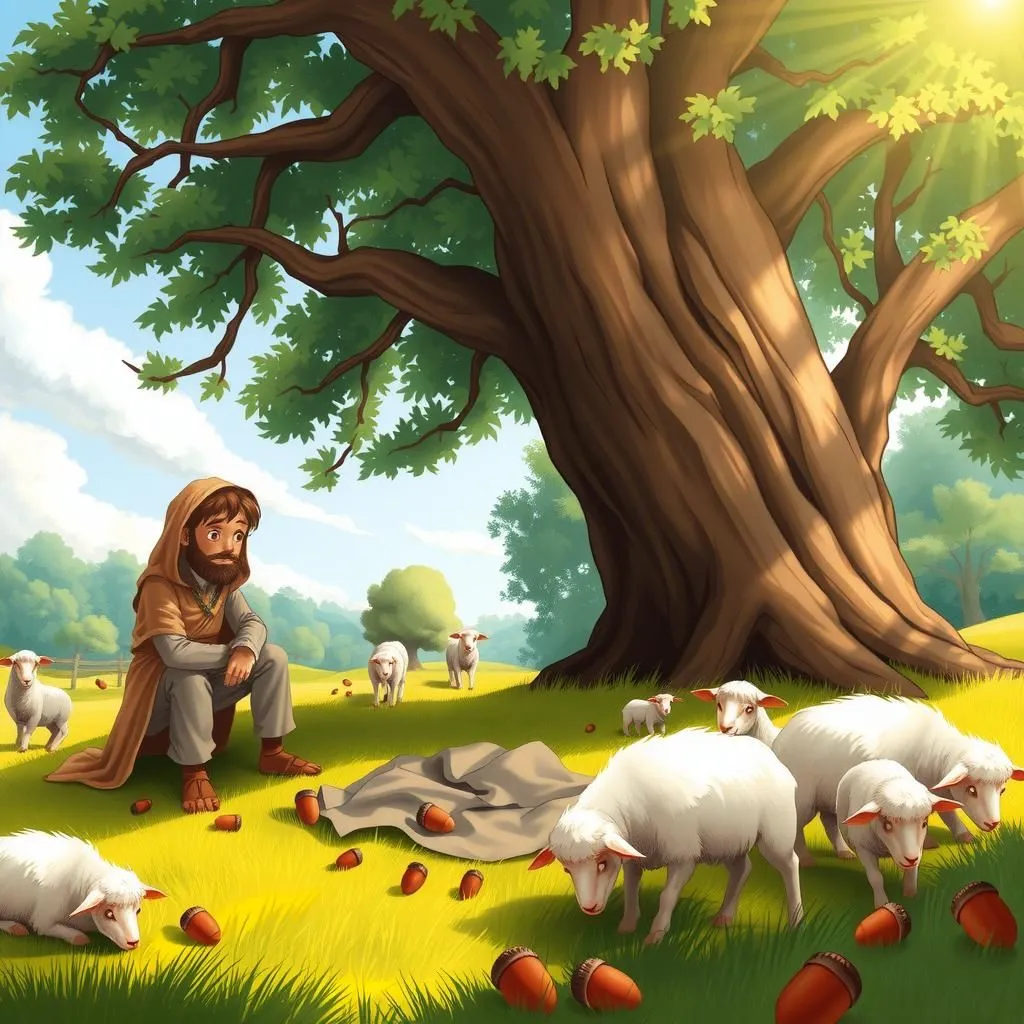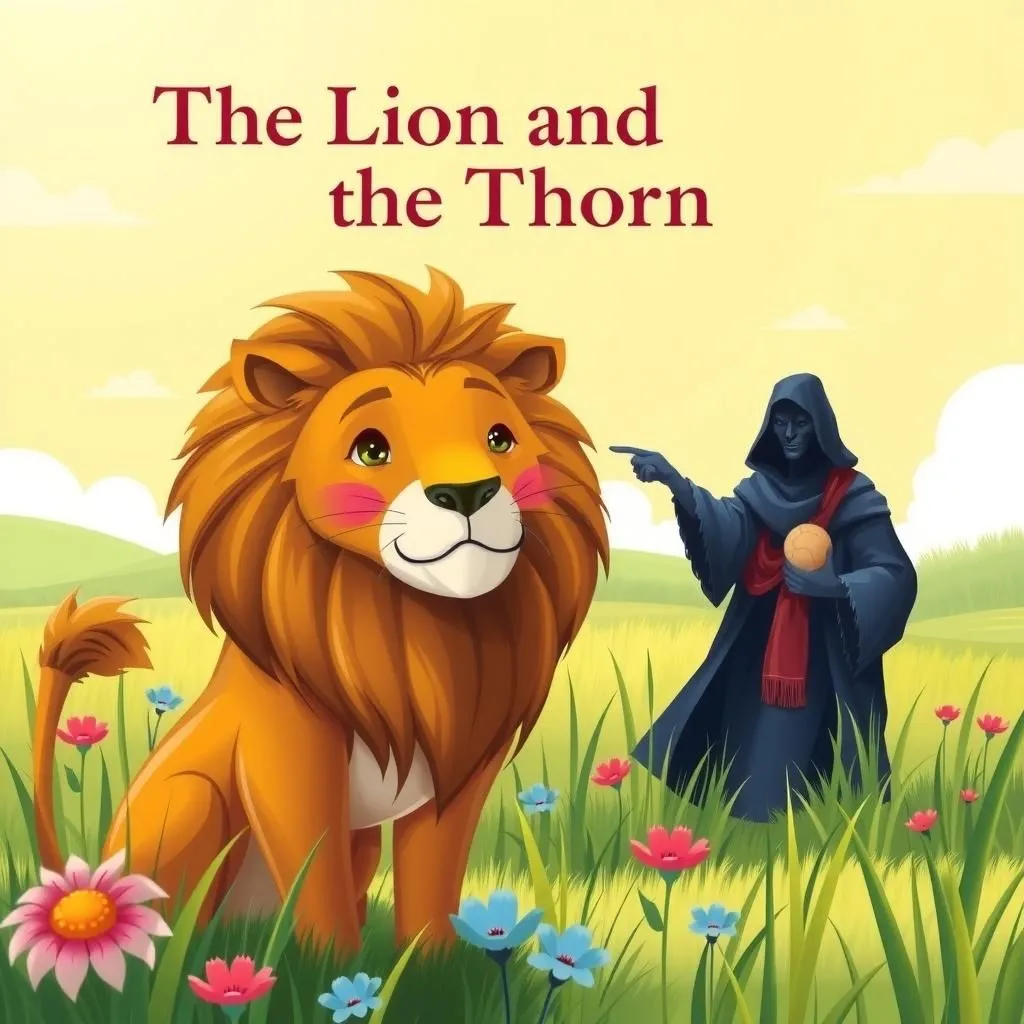
The Shepherd and the Sheep
In this short moral story, a shepherd seeks acorns for his sheep and spreads his cloak beneath an oak tree. However, while he gathers the nuts, the sheep inadvertently damage his cloak, prompting him to lament their ingratitude. This life-lesson story highlights the irony of how those who provide for others can be overlooked and mistreated, serving as an inspirational tale about appreciation and gratitude.


